Cargando...
Recursos educativos
-
Nivel educativo
-
Competencias
-
Tipología
-
Idioma
-
Tipo de medio
-
Tipo de actividad
-
Destinatarios
-
Tipo de audiencia
-
Creador
-
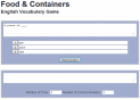
Food & Containers
Tiching explorer Organización
- 3590 visitas
Activity designed to practice vocabulary related to food (uncountable nouns). Complete the sentences with the appropriate word.
-
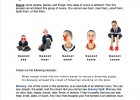
The Abstract Noun
Tiching explorer Organización
- 2750 visitas
This lesson explains the difference between abstract and concrete nouns using practical examples and offering a chart.
-
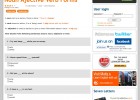
Noun Adjective Verb Forms
Tiching explorer Organización
- 1 lo usan
- 2501 visitas
This page defines nouns, verbs and adjectives. It also provides a multiple-choice exercise to practice distinguishing them.
-
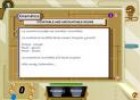
Products from Extremadura
Educarex Organización
- 5176 visitas
Activity designed to help us practice the use of countable and uncountable nouns. We improve oral and written skills.
-
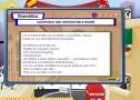
Talking about food
Educarex Organización
- 2 lo usan
- 4661 visitas
Activity designed to help us practice the use of countable and uncountable nouns. We improve oral and written skills.
-
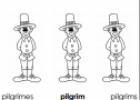
Thanksgiving more than one
Tiching explorer Organización
- 1 lo usan
- 2017 visitas
Printable worksheet (PDF file) designed to help us identify plural nouns. We revise vocabulary associated to Thanksgiving.
-
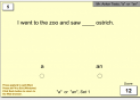
I went to the zoo
Tiching explorer Organización
- 2086 visitas
In this activity we practice the use of "a" or "an" before nouns.
-

Grammar - Go back to the text
EduBook Organización
- 1483 visitas
Countable and Uncountable Nouns Some nouns in English are countable. They have a singular and plural form. For example: an island → islands (noun + -s regular plural) a man → men (irregular plural)…
-

Complete: some, any, a or an
EduBook Organización
- 1231 visitas
Some, any, a or an We use some in front of nouns in affirmative sentences We use any in front of nouns in questions We also use it in negative sentences We use a with singular nouns which begin with a…
-

Much / many (I)
EduBook Organización
- 1676 visitas
There are too many people and too much confusion. we can count the people (countable) we use MANY for countable nouns we can’t count confusion (uncountable) we use MUCH for uncountable nouns Decide if…
Te estamos redirigiendo a la ficha del libro...










